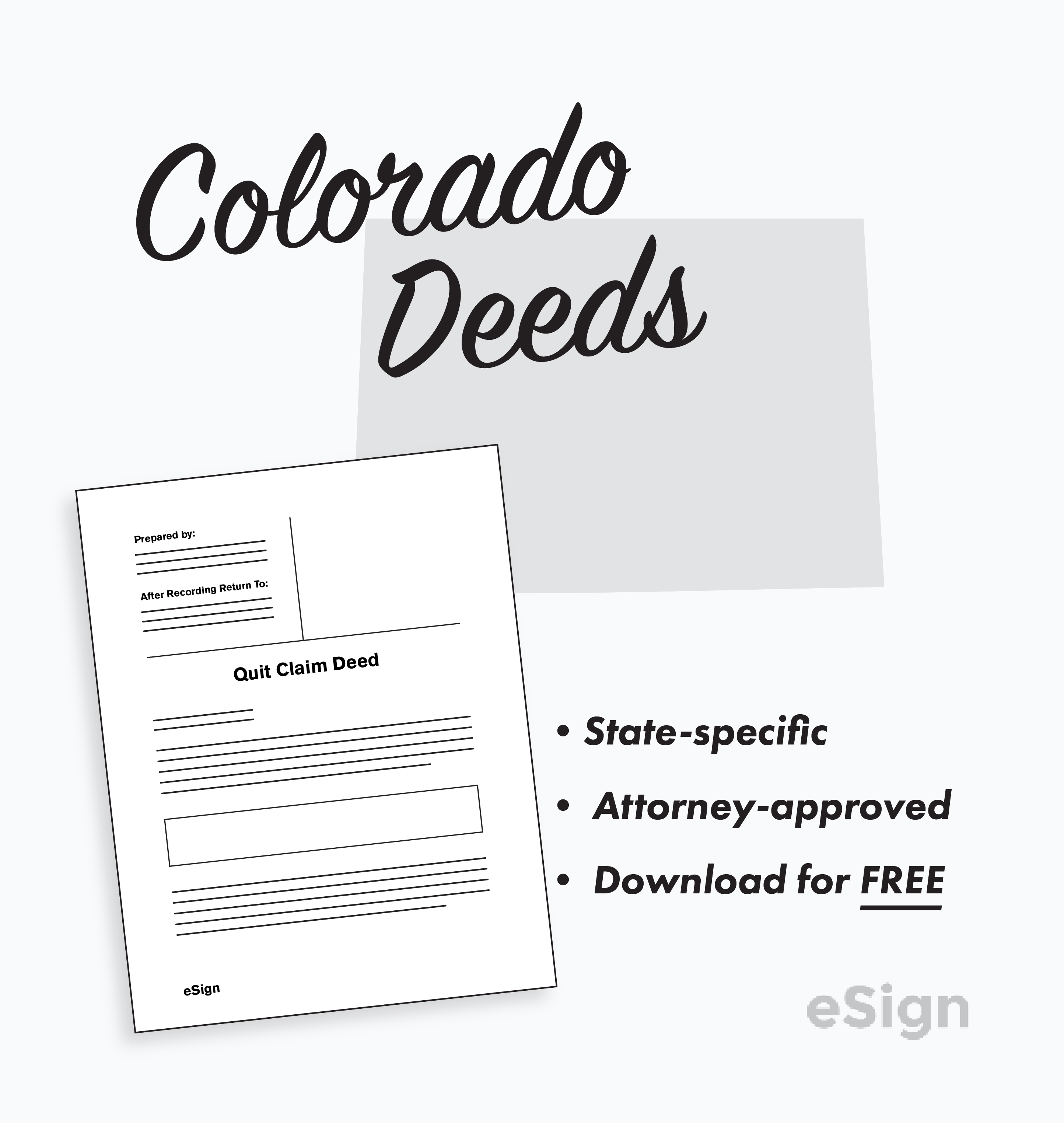By Type (5)
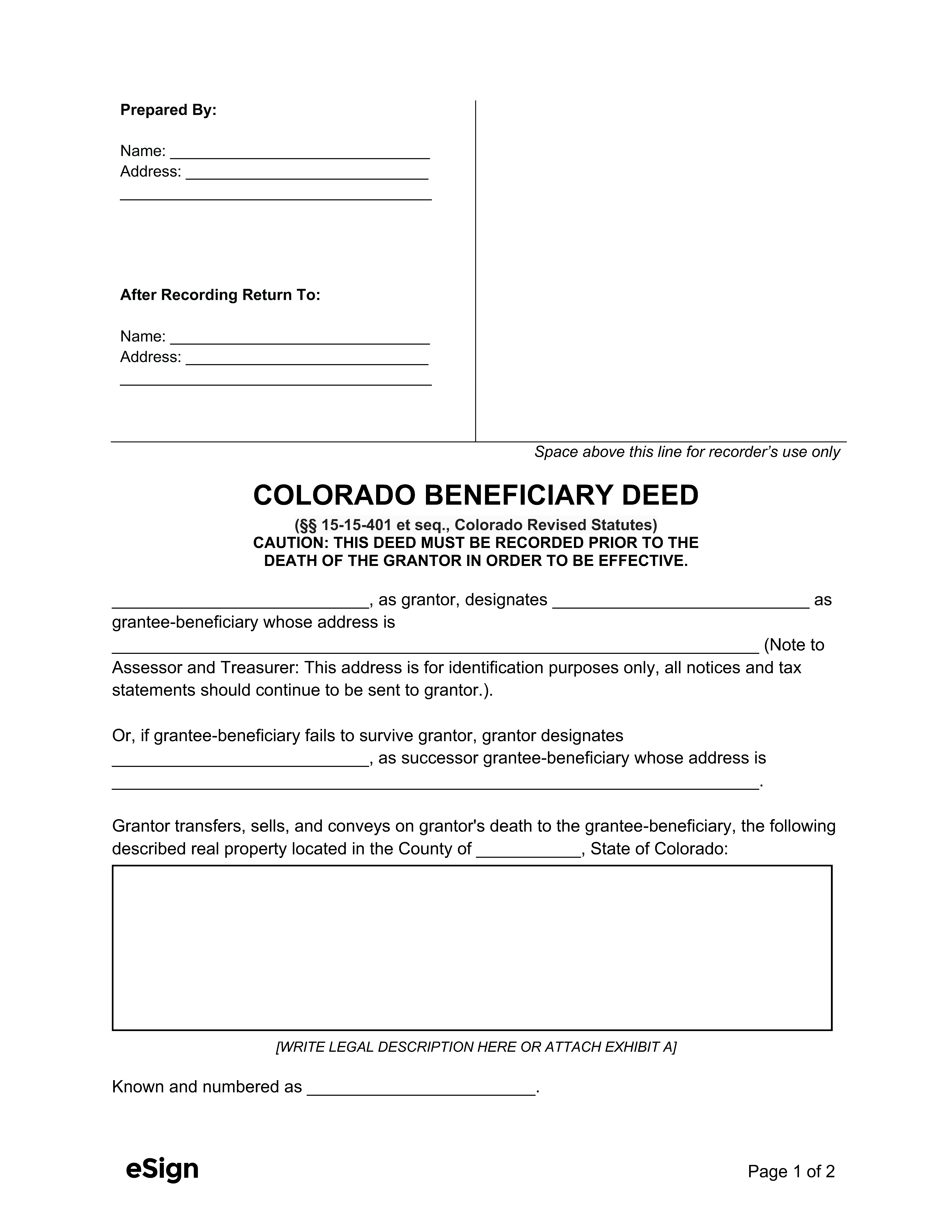 Beneficiary Deed – Generally used to avoid probate, this deed transfers title to a beneficiary when the property owner passes away. Beneficiary Deed – Generally used to avoid probate, this deed transfers title to a beneficiary when the property owner passes away.
|
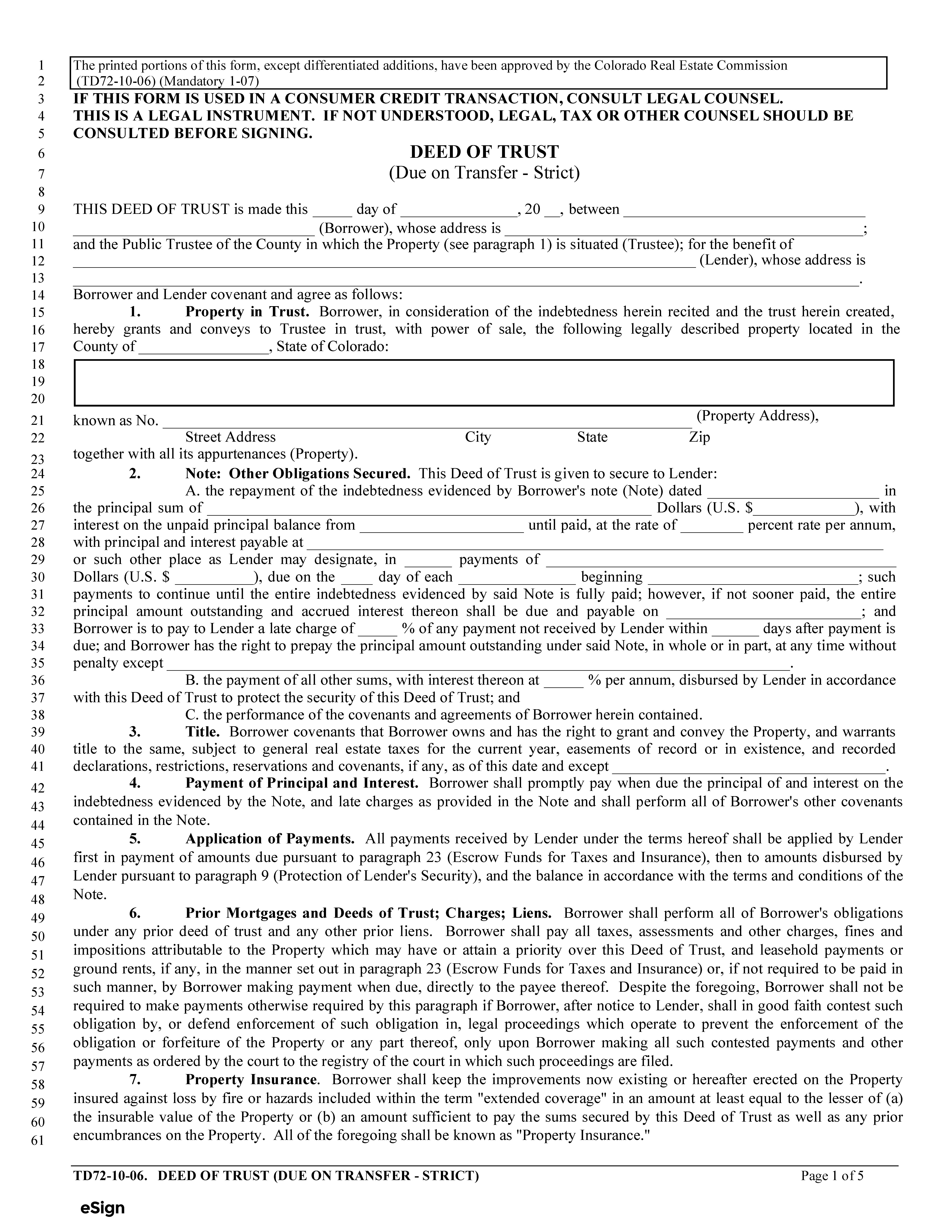 Deed of Trust – Used to secure real estate financing by transferring the property title to a third-party trustee until the loan is repaid. Deed of Trust – Used to secure real estate financing by transferring the property title to a third-party trustee until the loan is repaid.
Download: PDF |
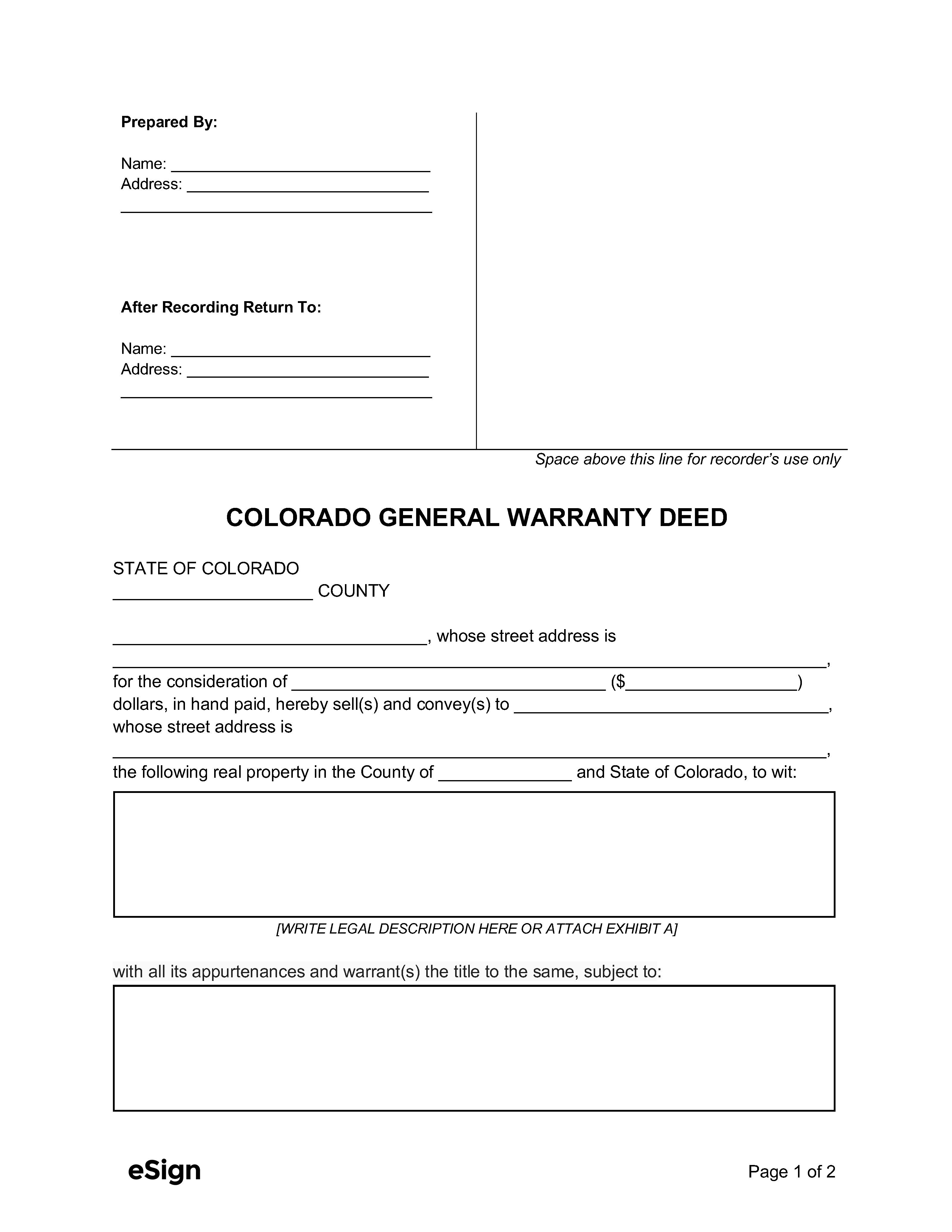 General Warranty Deed – Guarantees that the grantor holds the title to the property and that it has no liens or encumbrances. General Warranty Deed – Guarantees that the grantor holds the title to the property and that it has no liens or encumbrances.
|
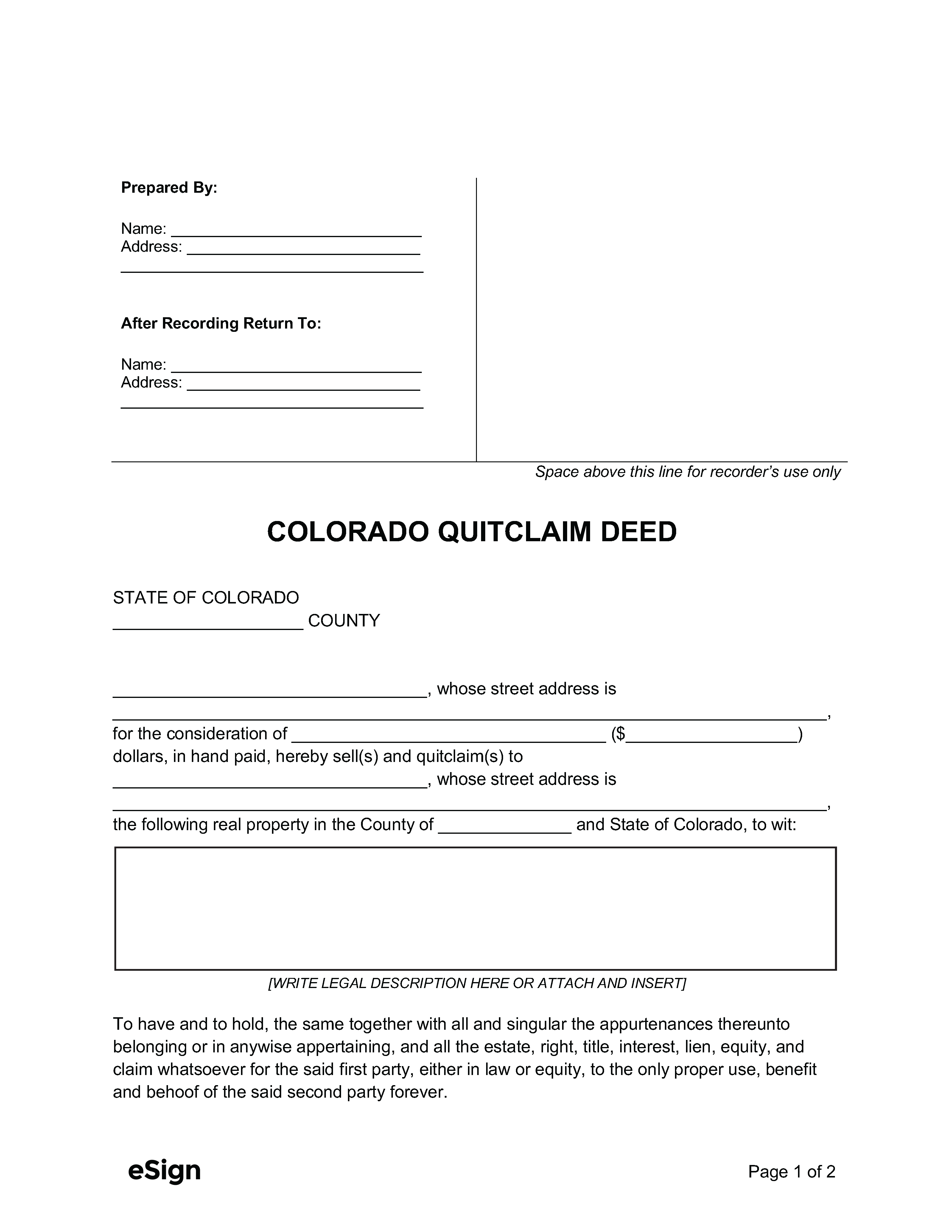 Quit Claim Deed – Transfers property without any guarantee of a clean title or the legitimacy of the grantor’s ownership. Quit Claim Deed – Transfers property without any guarantee of a clean title or the legitimacy of the grantor’s ownership.
|
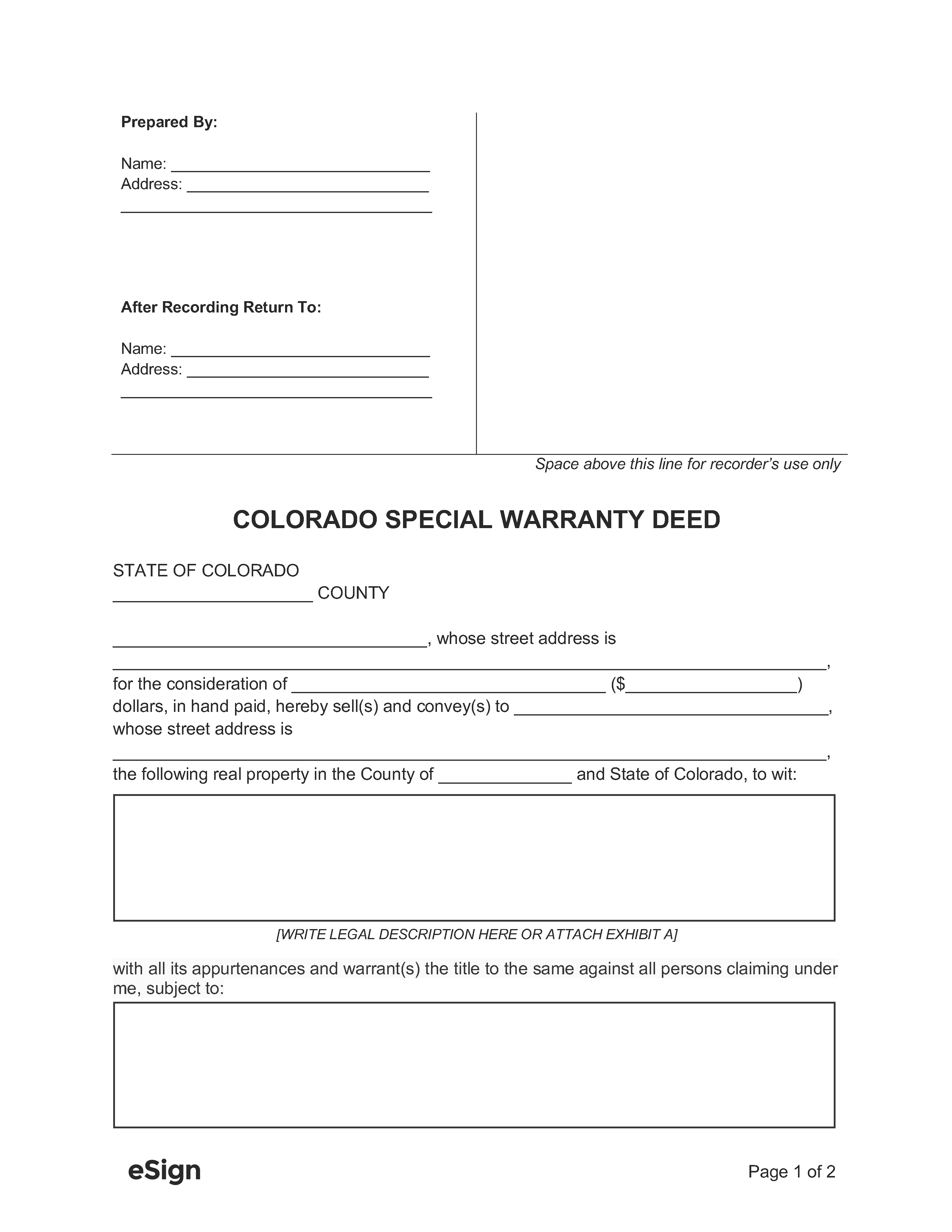 Special Warranty Deed – Similar to the general warranty deed, except the warranty does not extend beyond the grantor’s period of ownership. Special Warranty Deed – Similar to the general warranty deed, except the warranty does not extend beyond the grantor’s period of ownership.
|
Formatting
Margins – Top margins at least 1″, all other margins at least 1/2″[1]
Recording
Signing Requirements – The grantor must sign the deed with a notary acknowledgment.[2]
Where to Record – Once a deed has been properly executed, it must be filed at the County Clerk and Recorder’s office.[3]
Cost – $13 for the first page, $5 for each additional page (as of this writing).[4]
Starting July 1st, 2025, the recording cost will be a flat fee of $43.[5]
